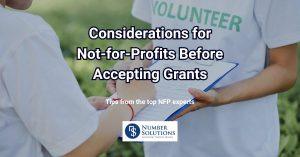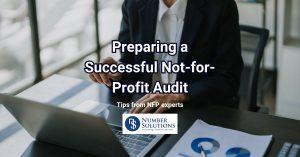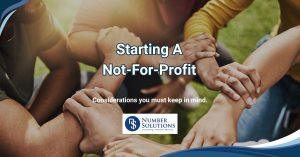» Trust » Best Tips to Find Trust Account Auditors
Best Tips for Finding Trust Account Auditors
Trust account auditors play a crucial role in ensuring compliance with regulations and maintaining the integrity of financial processes.
Finding the right auditor for your trust accounts is essential for safeguarding your business and ensuring transparency in financial practices.
In this article, we’ll explore some of the best tips to help you find trustworthy and competent trust account auditors.
Understanding Auditor Responsibilities:
- Assessment of Compliance: Trust account auditors are tasked with evaluating whether agents have adhered to relevant acts and regulations, such as ASAE 3000 and ASAE 3100. This involves a meticulous review of financial records, transactions, and processes to ensure alignment with legal requirements.
- Thorough Examination: Acting as financial detectives, auditors conduct comprehensive examinations of documents and data to identify any discrepancies or irregularities. Their scrutiny extends to all aspects of trust account management, from transactional accuracy to procedural compliance.
- Assurance Provision: The primary objective of trust account audits is to provide stakeholders with assurance that agents have maintained adequate controls and followed prescribed procedures. Auditors play a pivotal role in verifying the integrity and reliability of financial information.
- Promotion of Transparency: Trust account audits promote transparency, accountability, and integrity in financial practices. By uncovering any lapses or deficiencies, auditors help reinforce trust and confidence in the financial management processes of businesses.
- Guardianship of Financial Integrity: Auditors serve as guardians of financial integrity, safeguarding the interests of clients, investors, and regulatory authorities. Their rigorous assessments contribute to the overall trustworthiness and credibility of the financial reporting system.
By understanding the pivotal role of trust account auditors and their responsibilities, businesses can appreciate the importance of selecting qualified and competent professionals for this critical function.
Finding Trust Account Auditors:
Tip 1: Define Your Needs:
Start by identifying your specific requirements for a trust account auditor. Consider factors such as the size and complexity of your business, the industry regulations you need to comply with, and any unique challenges you may face.
Clarifying your needs will help you narrow down your search and find auditors with the right expertise.
Tip 2: Seek Recommendations:
Leverage your professional network and seek recommendations from colleagues, industry associations, or regulatory bodies. Personal referrals can provide valuable insights into the competence and reliability of potential auditors.
Ask for specific examples of successful audits or instances where the auditor went above and beyond to address client concerns.
Tip 3: Review Credentials and Experience:
When reviewing auditors, it’s essential to verify their qualifications, certifications, and relevant experience. Look for auditors with specialized certifications in auditing or trust accounting, such as Certified Internal Auditors (CIA) or Certified Public Accountants (CPA).
Additionally, consider their track record in trust accounting audits and their familiarity with the specific regulations governing trust accounts.

Tip 4: Evaluate Audit Methodology:
Take the time to understand the auditor’s approach to conducting audits. Discuss their audit methodologies, tools, and processes to ensure alignment with your business needs.
Inquire about the scope of the audit, including which trust account transactions will be reviewed and how data analysis will be conducted. Understanding their reporting format and the timeline for delivering audit findings is also crucial for effective planning.
Tip 5: Consider Industry Knowledge:
Industry-specific knowledge is essential when selecting an auditor for trust account audits. Look for auditors who have experience working with businesses in the real estate industry and a deep understanding of trust accounting practices.
They should be familiar with the unique challenges and regulatory requirements that govern trust accounts in your industry. Ask about their previous experience auditing similar businesses and their knowledge of relevant legislation, such as the Real Estate and Business Agents Act.
Tip 6: Discuss Communication and Reporting:
Effective communication is key throughout the audit process. Prioritize auditors who emphasize clear communication and transparent reporting. Discuss their communication channels and frequency of updates, ensuring that you’ll be kept informed of audit progress and any potential issues that arise.
Additionally, review samples of their audit reports to assess the clarity and completeness of their reporting. Clear and concise reporting will help you understand audit findings and take appropriate actions to address any issues identified.
Importance of Audit Testing:
- Ensures Compliance: Audit testing makes sure that your trust accounts follow all the rules and laws. Auditors check transactions and processes carefully to confirm everything is legal, keeping your business out of trouble.
- Finds Problems Early: By checking things thoroughly, auditors catch any small problems before they become big ones. This helps avoid legal issues and saves your business money.
- Makes Sure Things Are Right: Audit testing checks that all the money and numbers in your accounts are correct. This is important for keeping clients and other people happy and confident in your business.
- Keeps Things Clear: Regular audit testing shows that your business is honest and open about its finances. It helps build trust with clients, investors, and others who care about your business.
- Gives You Peace of Mind: Knowing that an auditor has checked everything properly gives you confidence that your finances are okay. It takes away worries about whether you’re doing things right.
- Helps Improve How You Do Things: Audit testing can show where your business can do better with money. It helps you make changes to how you handle finances, so everything runs smoother.
- Helps You Make Good Choices: Having accurate financial records helps you make smart decisions for your business. Audit testing makes sure the information you use to make choices is reliable.
- Keeps You Safe from Bad Stuff: Auditors are trained to spot signs of bad things happening with money, like fraud. Audit testing helps prevent bad things from happening to your business.
Regular audit testing is important for making sure your trust accounts follow the rules and work well. It helps keep your business safe and trusted by everyone involved.
Knowing Audit Lodgement Deadlines:
- Why Deadlines Matter: Deadlines are like finish lines in a race. They’re the dates you need to get your audit report submitted. If you miss them, you might get into trouble and have to pay fines.
- When to Lodge: For audits ending on 30 June 2023, you need to send in your report by 30 September 2023. That’s like handing in your homework on time!
Key Dates to Remember:
- 1 July: This is when the online portal opens for auditors to start submitting reports.
- 1 July – 30 September: You’ve got this time to submit your audit reports on time. Don’t procrastinate!
- 1 October – 31 December: If you’re late with your submission during this period, it’s not good news. You might face fines.
- 1 January: The online portal closes for the year, so make sure you’ve submitted your report by then.
Stay on Track:
Mark these dates on your calendar or set reminders on your phone. It’s important to stay on top of deadlines to avoid any penalties.
Conclusion:
Finding the right trust account auditor requires careful consideration and thorough research. By understanding auditor responsibilities, the importance of audit testing, and audit lodgement deadlines, you can navigate the process more effectively.
Implementing the top tips for finding trust account auditors will help you identify competent professionals who can provide reliable assurance and support compliance efforts in your business.
Related Articles:






